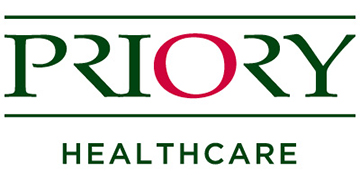Call now
0333 987 4045
By James Shields - 21st Jan 2022
Read time - 5 minutes
Call it what you like: vaccine mandates, compulsory Covid-19 vaccination, vaccination as a condition of deployment (VCOD2), this is a controversial rule that will have a big impact on providers and staff when introduced on 1st April.
As it stands from April NHS staff, many of whom have worked heroically through the last 24 months, will be dismissed if they haven’t had the Covid-19 vaccine or provided a medical exemption. The reason for this is to provide the maximum protection to patients and the community from those treating them.
The looming deadline for all health workers to be fully vaccinated by April means that staff will need to have their first dose of the jab by 3rd February or face dismissal. In preparation for this, all healthcare providers are documenting vaccine statuses, collecting evidence, offering support to staff and having difficult conversations. Another mammoth task adding to an already overwhelming list of responsibilities.
But like the rest of the country - and a few famous tennis players - there will be a small minority who for whatever reason, will not comply with the new law. For those individuals who work in the NHS, sadly this means their careers could be over. This will have significant implications for themselves, providers and the wider NHS. Here’s what we’ve seen so far.
An already tired and depleted workforce
In many ways, sacking any number of staff at this time is unthinkable. Trusts, GPs, Community services, Ambulance services and everyone else have just navigated the busiest period of the year, a second year of the Covid pandemic and are in the midst of the Omnicron wave.
Due to infections and isolation among staff, providers have reported absenteeism up to 25% - a quarter of their workforce. This puts strain on the system and the remaining staff to maintain the same standard of care but also causes burn-out, moral issues and decreased job satisfaction which may have long-term implications for the workforce.
This is on top of the usual vacant posts, staff overload and agency dependency. Getting through the day is the focus of most providers and losing more staff will only make the situation worse.
Keep communicating
It’s important to note that there is still time for anyone who hasn’t been vaccinated yet to do so. The deadline for health workers to be fully vaccinated by April means that staff will need to have their first dose of a jab by 3rd February - two more weeks from now. This means that there is time to persuade, advise, support and convince those reluctant to do so - if you have the capacity that is.
Communication and dialogue are key to convincing those who are hesitant and many managers report proactive informative campaigns to be effective in reducing those who were originally non-compliant. There is evidence that support can make a real difference in getting hesitant staff vaccinated with one trust reporting a 50% reduction in one week through one such campaign.
Every case is different but there is also a contingent of staff who believe that they won’t be sacked for failing to comply and they can call their employer’s and the Government’s bluff. Whilst a u-turn is possible, the precedent that was set in social care back in November should be an indicator of the very real consequences to persuade this group.
The key is to keep communicating and engaging staff up until the last opportunity, minimising disruption to staffing levels as much as possible.
Redeployment
Redeployment into other positions of unvaccinated staff is what NHS England are recommending where possible. Whilst in principle this may sound like a solution, it is likely to only be possible in very few cases and it presents a range of practical and ethical challenges.
From a practical perspective, how feasible is it to redeploy a consultant into a receptionist role? Obviously, an extreme and unlikely example but even attempting to move clinical staff into research, advisory, teaching or teleconsultation roles only works if there are available vacancies.
The next question is whether this should happen. Do these staff really get preferentially placed into positions over other staff’s rotations or promotions? That may create animosity between staff that have complied and are seeing themselves unfairly or adversely treated because of this minority.
The guidelines are vague but redeployment is unlikely to be an option for any significant number of staff. Even those who can be, it is unlikely to create satisfactory positions for themselves or their new teams and must be managed carefully.
Dealing with backlash
Compulsory vaccines are new in this country but employment law is not. Whilst providers will have a legal responsibility to not have unvaccinated staff in patient-facing roles from April 1st, they also need to meet their employment law obligations to staff.
This means following a consistent procedure, evidencing the process and ensuring it is done in a lawful way. This need to be done with care and diligence to protect individuals and organisations. Providers should leverage legal advice and follow standard processes.
Again taking lessons from VCOD1 - applied to care workers and came into force in November last year - there will be a strong lobby from individuals, unions, politicians and others alike which will create a backlash in the form of legal challenges in individual cases.
The guidelines are vague but redeployment is unlikely to be an option for any significant number of staff. Even those who can be, it is unlikely to create satisfactory positions for themselves or their new teams and must be managed carefully.
Providers, like any employer, need to protect themselves.
Evidencing compliance
The last important consideration is how to evidence compliance and again, without any national guidance, every provider is handling this in their own way.
We advise everyone to use official NHS certificates with barcodes which staff can download and provide through their NHS App. Managers can then download the NHS COVID Pass Verifier app but this only analyses domestic barcodes which only shows if someone has been either vaccinated, completed a negative PCR test or they are except. It does not therefore verify that someone has been vaccinated. For that you required the barcodes on their travel certifcate which details far more information such as vaccination date and type. Only once the certificates have been validated should staff be deemed compliant. A record of these certificates should be kept on their staff record.
Providers with effective digital staff management platforms should be able to upload the documents and have them approved through apps. The latest platforms also have integrated Compliance services which will link Covid-19 vaccination status to the staff members overall compliance and fitness to practice. Digital systems need to be flexible enough to respond to any changes (eg. mandatory boosters) which will inevitably occur as policy evolves.
For the strongest compliance checks, we have introduced an integrated barcode reader which automatically checks the validity of the certificate that has been uploaded and relays that back to administrators. This is the gold standard for compliance and what we have advised for all our clients.
Please reach out to us with your thoughts or experiences. For further information or support with your vaccination as a condition of deployment compliance, contact [email protected] or call on 0333 987
4045











